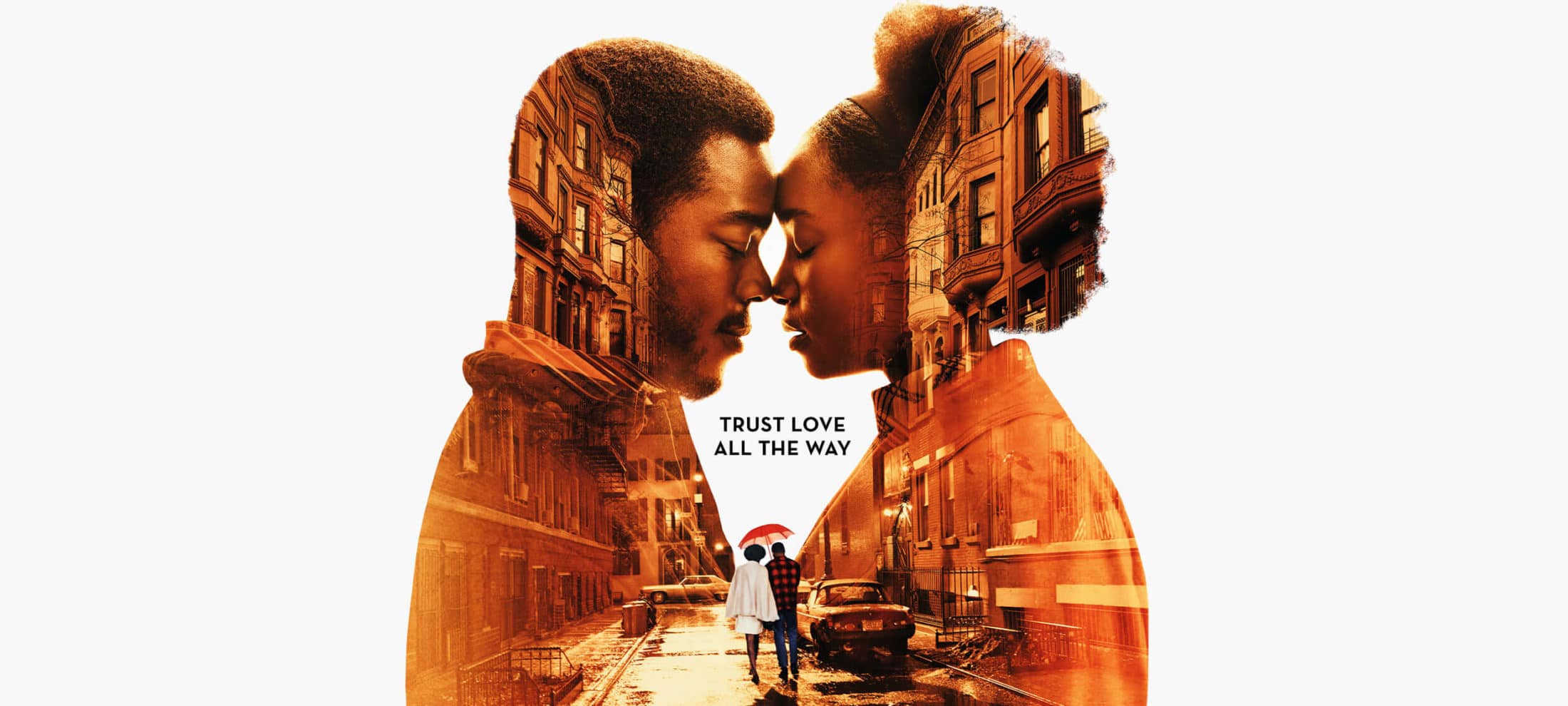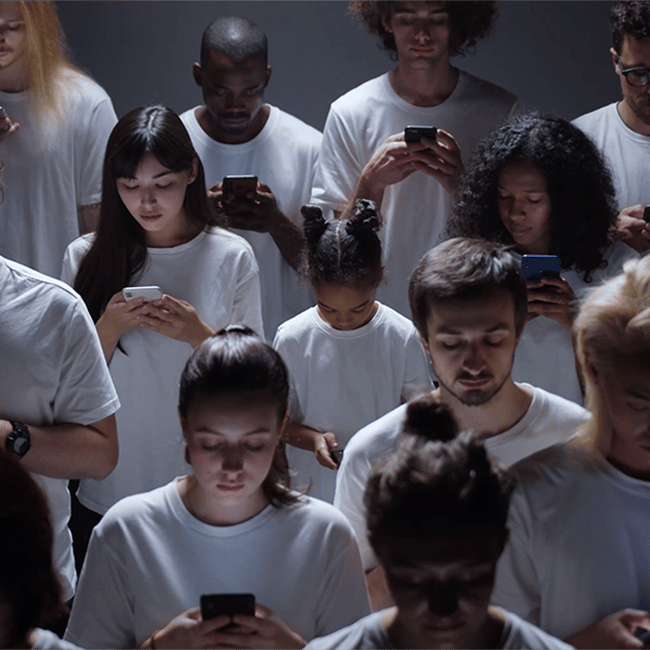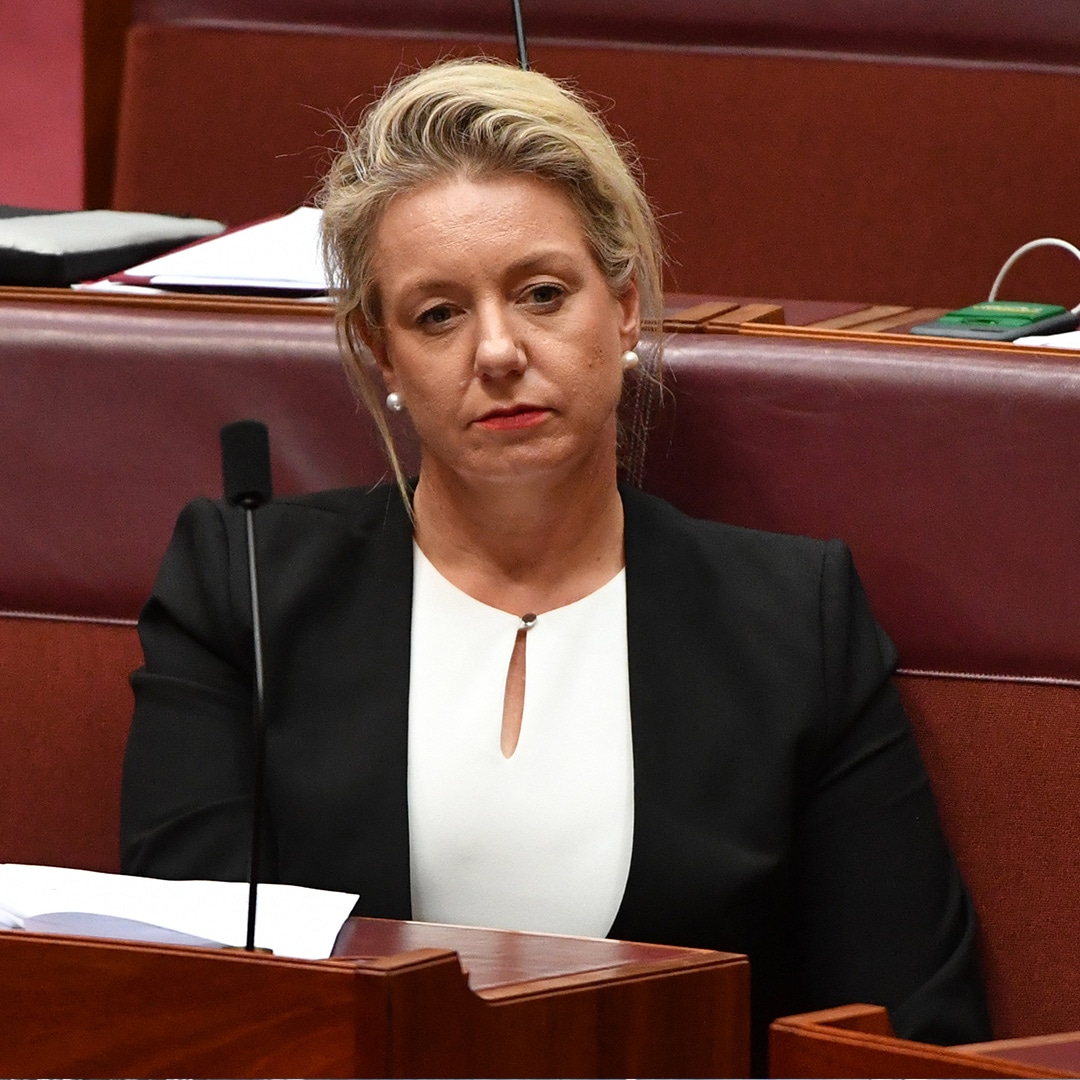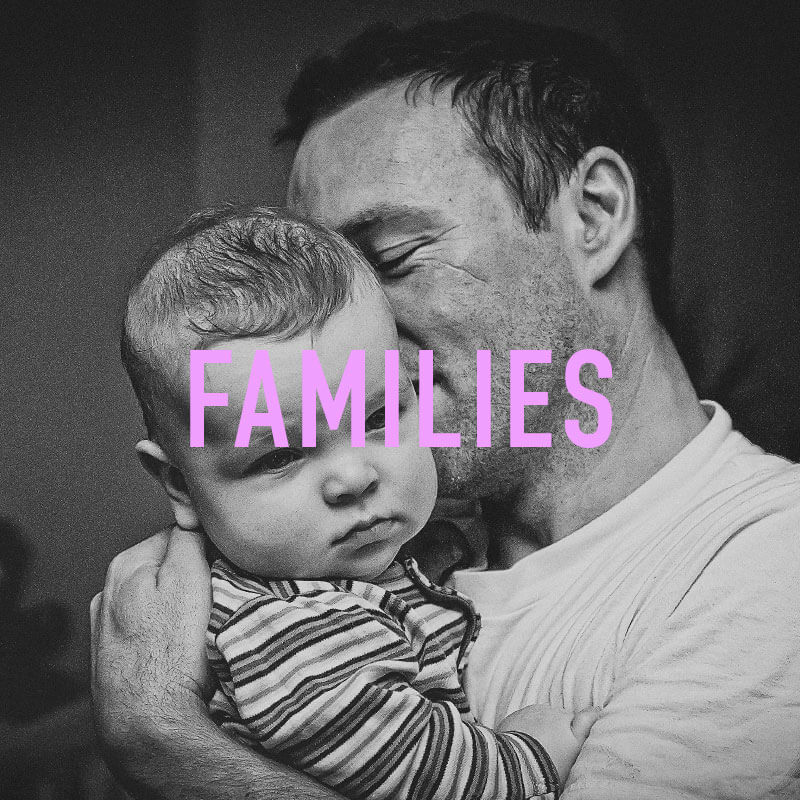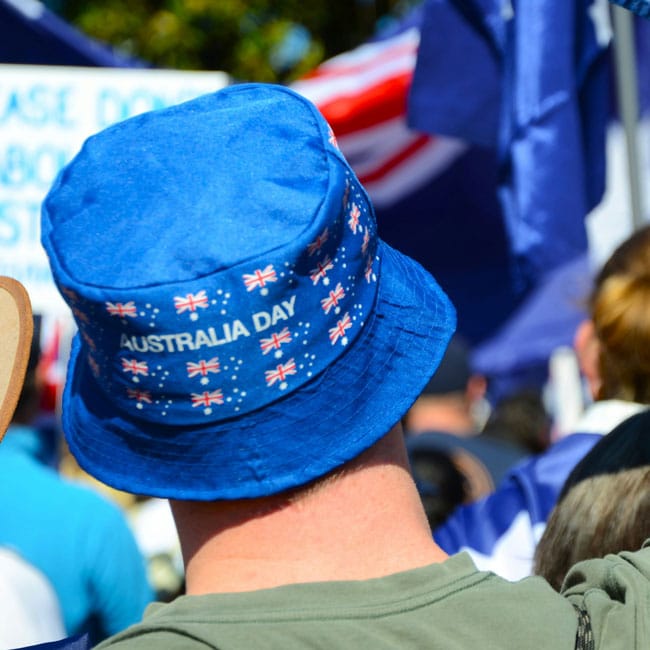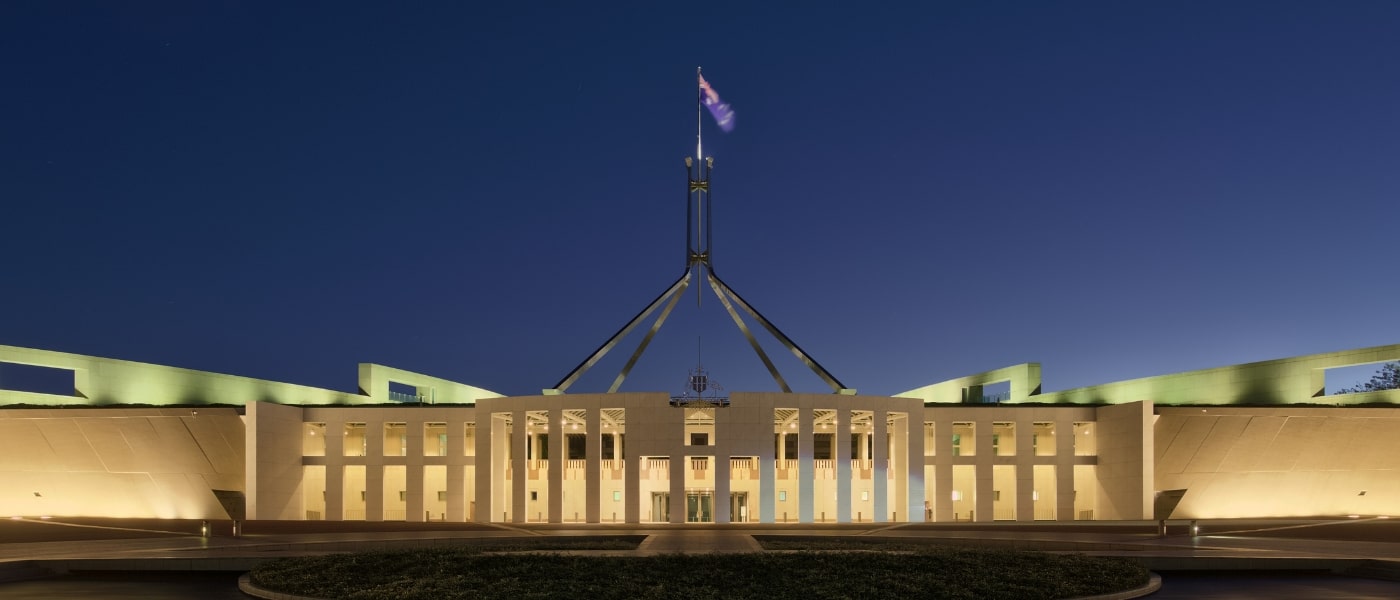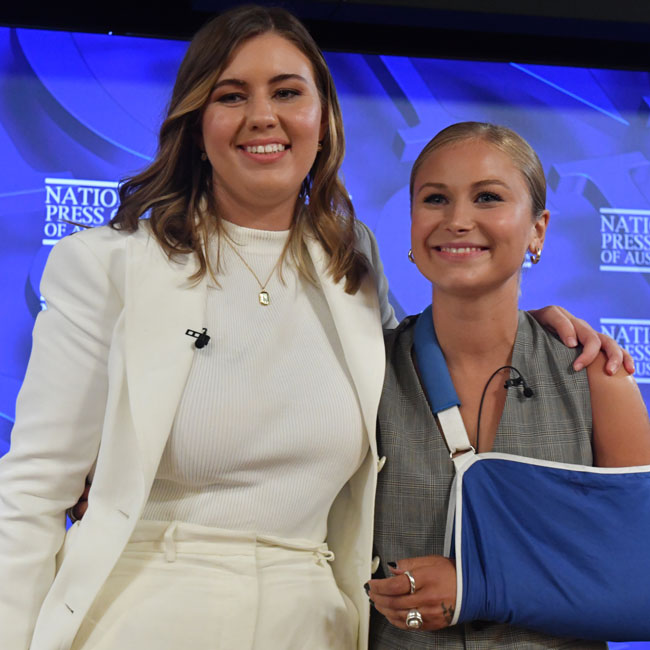Trump and the failure of the Grand Bargain

Trump and the failure of the Grand Bargain
Opinion + AnalysisPolitics + Human Rights
BY Tim Dean 11 NOV 2024
Work hard, play by the rules and you will have a successful and good life. Or so we’re told. Trump’s recent Presidential victory says a lot about how democracy has failed us.
It’s been a few days since it was announced that Donald Trump would be returning to the Oval Office after winning a decisive victory against Vice President Kamala Harris, and it already feels like 2016 again. Like then, many people are straining to make sense of how a man they deem to be morally bankrupt could have secured the votes of over 72 million Americans.
There will likely be pools of ink spilt attempting to explain the political and economic factors that returned Trump to the White House. But I want to view this moment through a broader moral lens. Because, while Trump’s first victory in 2016 might have been interpreted as a freak event, where a political outsider disrupted an otherwise healthy and functional democratic society, his second decisive victory suggests there’s something deeper and more pervasive at work – a failure that persists at the core of democratic society that Trump was able to exploit.
The Grand Bargain
Go to school, behave yourself, study hard, get a job (any job), work hard, pay your taxes and play by the rules. If you do all this, then society will ensure that you will be a success and enjoy a good life.
That’s what I call the ‘Grand Bargain’ of modern liberal democratic society. It goes by different names, with a different spin, in every democracy through terms like the “American Dream” or the “Great Australian Dream”. But it goes beyond just the idea that opportunity is open to all or that home ownership is a natural step towards financial security. It’s like an implicit agreement between the state and the individual: play by the rules and everything will be OK.
However, many people in ‘rich’ countries are not OK. I barely need to mention inflation, the rising cost of living, stagnant wages, unaffordable housing, exorbitant rent, the offshoring of jobs, the rise of insecure gig work, the closure of traditional industries and manufacturing, not to mention the fact that corporate profits are skyrocketing and the top 10% are doing better than ever. The Grand Bargain has been under pressure since the 1990s and, arguably, it’s been broken ever since the Global Financial Crisis of 2008-2009.
And people are angry. This is not just because the failure of the Grand Bargain has resulted in real material disadvantage, but the anger has a moral dimension due to a deep sense of injustice at the failure of the state – especially politically and economically – to live up to its end of the Bargain.
Injustice breeds outrage, and outrage is a moral emotion that creates a desire to punish the perceived wrongdoer. In this case, the perceived wrongdoers are the political ‘elites’ who have been instrumental in promoting economic growth at the expense of the workers within that economy. In most modern liberal democracies, those elites include members of both the Left and the Right, especially since the neoliberal turn of the 1990s. So, over the last two decades, no matter who people vote for, the Grand Bargain has remained broken.
It doesn’t matter that Trump is part of this elite political class. It doesn’t matter that his policies are little more than a basket of fantasies that will almost certainly worsen the economic circumstances of most of those who voted for him while enriching the super rich even more.
What matters is that Trump has effectively given voice to those who feel that the Grand Bargain has failed, and that it’s politics-as-usual that has let them down.
And what Kamala Harris represented – as did Hillary Clinton before her – was politics-as-usual: a kind of politics that tinkered around the edges by providing small perks to certain groups to offset the huge systemic disadvantages they faced. Meanwhile, they were afraid to enact systemic change because that would require facing off against the powerful vested interests who continue to benefit from the current economic paradigm.
Identity crisis
But this is not the full picture. The Grand Bargain isn’t just about economics, it’s also about identity. In order to live a good life, we need more than just material prosperity, we also need to have our identity recognised and to experience a sense of pride.
Whether justified or not, large segments of the population in many liberal democracies have felt that their identity has been under attack. Neoliberal policies have taken away the work that gave them a source of meaning and pride in their lives. Multiculturalism has fragmented their communities, eroding social capital and leaving them feeling unmoored in their own neighbourhoods.
The recent historical reckoning over colonialism and racism has contributed to a narrative of shame directed at the beneficiaries of systemic discrimination, particularly white people. Similarly, the historical reckoning over sexism has promoted a narrative that many men feel has disempowered them and challenged a core feature of their identity.
I hasten to add that there is much that modern liberal societies must reckon with. But what’s of importance here is how that reckoning has been perceived by many people, especially at a time when their material circumstances have been increasingly precarious.
Meanwhile, the ‘elites’ – particularly on the progressive side of politics – led these attacks on identity, policing speech and behaviour, and perpetuating a narrative that expressions of pride in one’s heritage or culture, or any expression of concern about diversity, inclusion or the welfare of men was to be perceived as a form of bigotry. As a result, many people changed the way they spoke and behaved in public, but they didn’t change the way they thought.
Then along comes Trump. He didn’t change the way he spoke or behaved. He said what many people were thinking. He validated the identities of many people who felt under-recognised. He offered a counter-narrative of pride rather than shame.
Be bold
When you look at Trump’s victory through the moral lens of outrage directed at the failure of the Grand Bargain and at the narratives that cause people to feel shame, then it makes a lot more sense.
Trump was uniquely positioned to exploit this outrage, to give voice to the indignance that many Americans feel in being ‘left behind,’ and to offer a narrative of ‘greatness’ that promised to restore their pride.
It doesn’t matter whether his solutions are the right ones to fix the grievances he’s tapping into. What matters is that he validated public outrage at the failure of the Grand Bargain, and he presents himself as strong enough to do something about it even in the face of powerful vested interests (even if he, and his friends, are those vested interests).
Those who are concerned about the implications of a second Trump presidency, or who lament the rise of populism in democracies around the world, would do well to shift their attention from blaming voters and direct it towards restoring the Grand Bargain. That is not an easy thing to do. It will likely require facing off against powerful vested interests. But through this moment might come avenues to rectify the deeper failures of modern democratic societies and prevent the rise of populists who recognise those failures but whose solutions only make the problems worse, not better.
If there’s one lesson that Trump has for all politicians, it’s that if boldness and fearlessness coupled with a commitment to promote the interests of one’s supporters can overcome the many political drags that Trump brought to his campaign, imagine what it could to for someone of principle.

Ethics in your inbox.
Get the latest inspiration, intelligence, events & more.
By signing up you agree to our privacy policy
You might be interested in…
Explainer
Politics + Human Rights
Ethics Explainer: Anarchy
Opinion + Analysis
Politics + Human Rights
Israel or Palestine: Do you have to pick a side?
Opinion + Analysis
Politics + Human Rights, Relationships, Society + Culture
Film Review: If Beale Street Could Talk
Opinion + Analysis
Politics + Human Rights, Relationships, Society + Culture
The sticky ethics of protests in a pandemic
BY Tim Dean
Dr Tim Dean is a public philosopher, speaker and writer. He is Philosopher in Residence and Manos Chair in Ethics at The Ethics Centre.
How to have a difficult conversation about war

How to have a difficult conversation about war
Opinion + AnalysisRelationshipsPolitics + Human Rights
BY Tim Dean 4 OCT 2024
Many people feel they need to talk about the conflict unfolding in the Middle East, but others find that conversation distressing. Here’s how to have a conversation about ongoing conflicts in a safe way for everybody.
This year – and possibly for many years to come – October 7th is going to be a difficult day to endure for many people, not least those with a connection to Israel, Palestine, Lebanon and other countries in the Middle East. Even for those without a connection to those lands, the news of the conflict there is hard to avoid. Headlines are filled with tragedy, streets a filled with protestors, and walls are covered in posters howling in outrage or crying for justice for one side or the other.
In this environment, it’s not surprising that many people feel compelled to share their thoughts and feelings about the conflict. And it’s equally unsurprising that many others find it too distressing a topic to engage with, whether it’s because they are affected themselves or because they feel powerless to avert the unfolding tragedy.
People should also be forgiven for not engaging in an emotionally charged and potentially distressing conversation. While we should all have some awareness of major happenings around the world, we are not obligated to engage with those that don’t impact us or our community and are beyond our control.
However, a problem occurs when people of opposite dispositions meet, and some desperately want to talk about the conflict and others desperately want to avoid just such a conversation.
So, here are some approaches you can use if someone starts a conversation about the conflict, especially if that’s a conversation you’re not totally comfortable diving into.
Pause
Often, when we hear something that triggers a strong emotional reaction, especially if it’s a view we might disagree with, we react as we would to a physical threat: fight, flight or freeze.
Some reactively fight, and immediately push back with an alternative perspective. But if we start a conversation from a position of opposition, it shifts the dynamics into one of conflict rather than cooperation. That isn’t a problem if everyone has tacitly agreed to enter debate mode, but often that’s not the case, and conflict can easily trigger defensive reactions that cause the conversation to spiral into an unproductive clash, only heightening everyone’s emotions.
Others attempt to flee from the conversation, such as by changing the subject or even physically leaving the room. However, if the person raising the issue feels compelled to do so, they may remain unsatisfied and will just raise the issue again at another point. Freezing, on the other hand, may be perceived as tacit agreement to dive into the conversation, which might end up being harmful or distressing for those involved.
So, the first step for managing difficult conversations is to pause whenever you hit a point of contention or at the first indication of raised emotion, either in yourself or those you’re talking to. This gives you an opportunity to recognise and acknowledge your immediate reaction and quickly take stock of who else is in the conversation and what they might be feeling. And if we believe that someone in the conversation might be in genuine distress – including ourselves – then we can work to steer the conversation in a different direction.
Cast the net wider
One approach for steering a conversation away from potentially distressing content is to not engage with the content directly, but instead go “meta” and talk about what you’re talking about.
So, instead of sharing opinions or judgements about the conflict in the Middle East, ask questions about the conversation itself: why are people so invested in the conflict – especially if many of them don’t have a personal connection to those affected? How are people talking about it? Are the conversations going on around the country and in the media helping or are they divisive? How are these conversations affecting people, especially those who are connected to the conflict? How should we be talking about it?
Asking meta questions like these can shift the conversation away from the details and on to the human impact that the conversation is having. It can prompt everyone to reflect on their role – and responsibilities – when talking about potentially distressing subjects and cultivate empathy with those affected.
Going meta can also allow you to offer a more explicit invitation to take the conversation to another stage, giving everyone an opportunity to opt-in or opt-out. The meta conversation may have already helped to set some ground rules for how a conversation about the conflict might unfold, including what kind of language is appropriate and what kinds of topics are off limits out of respect for those affected.
Explore feelings
If you progress the conversation further – or if others feel compelled to do so – it doesn’t mean you need to dive straight into sharing your opinions on the conflict itself. Instead, there is another framing that can be equally, if not more constructive. This is the “expressive” frame.
Rather than asking people what they believe, invite them to share how the conflict makes them feel. This focuses the conversation on emotions and experience rather than opinions or judgements. There’s a subtle but important difference between the two.
We all have opinions and judgements about issues that are important to us, and are more than ready to offer reasons to support our attitudes. But as the American psychologist Jonathan Haidt has pointed out, many of these opinions and judgements ultimately stem from our emotional reactions.
When we experience outrage, for example, we immediately form a negative judgement of the perceived cause, and we often fish for reasons to support that judgement. This means that many of our reasons are post-hoc rationalisations of our emotional responses. If you start discussing these post-hoc rationalisations, you’re not really engaging with the root causes of how someone feels about an issue. Instead, it’s often far more fruitful to unpack the way they perceive the issue in the first place and discuss how that makes them feel.
Engaging in the expressive frame has another benefit: often people who have strong feelings about an issue have a deep need to have those feeling heard and validated by others. By asking how they feel and just listening to them and validating those feelings – without necessarily agreeing with their opinions – can satisfy them and might even prompt them to listen to how you feel about it.
Conversational scripts
Both the meta and expressive conversational modes are ways of engaging with difficult issues without tackling the substantive – and potentially harmful or distressing – content head on. They give you a chance at having a meaningful conversation that can be more sensitive and help protect those who might feel threatened or unsafe.
That said, it can be difficult in the heat of the moment to know what to say to shift the conversation to the meta or expressive frame. For this reason, it can be useful to have a few conversational scripts up your sleeve that you can whip out as needed.
If someone expresses outrage about some aspect of the conflict, the protests or political response, and you want to shift to the expressive frame, you could say: “I’ve been hearing about that everywhere. How do you feel when you hear about it?”
Or if you want to move away from commentary about distant news and ground it, perhaps ask: “Do you know anyone affected by the conflict? How are they faring?”
And if you want to shift to the meta frame, ask: “What do you think about the way people are talking about the conflict? Is that contributing to the division?”
Finally, it’s always useful to have some conversation exits ready and waiting in case things go off the rails or things become a bit too heated or distressing. You can say things like: “that reminds me of…”, or “I wanted to ask you about…”, or even “have you seen…”, and fill in the blanks with content that you think will be appealing to your conversation partner, whether that’s something about themselves (always a favourite topic), sport, popular culture or something else that everyone can relate to. There’s no shame in tactfully changing the subject when you feel a conversation has exhausted itself (or you).
Talking about difficult issues like the conflict in the Middle East can be distressing, but there are ways for you to take charge of the conversation and steer it in a way that is ethical, respectful and yet protects you and those around you.

Ethics in your inbox.
Get the latest inspiration, intelligence, events & more.
By signing up you agree to our privacy policy
You might be interested in…
Opinion + Analysis
Relationships
Parenting philosophy: Stop praising mediocrity
Opinion + Analysis
Health + Wellbeing, Relationships
There is something very revealing about #ToiletPaperGate
Opinion + Analysis
Relationships, Science + Technology
Age of the machines: Do algorithms spell doom for humanity?
Opinion + Analysis
Politics + Human Rights, Climate + Environment
What we owe each other: Intergenerational and intertemporal justice
BY Tim Dean
Dr Tim Dean is a public philosopher, speaker and writer. He is Philosopher in Residence and Manos Chair in Ethics at The Ethics Centre.
We are witnessing just how fragile liberal democracy is – it’s up to us to strengthen its foundations

We are witnessing just how fragile liberal democracy is – it’s up to us to strengthen its foundations
Opinion + AnalysisPolitics + Human Rights
BY Tim Dean 22 JUL 2024
Unless we want to slip into a world where force and coercion drive politics, then we all must invest in reinforcing the institutions that keep liberal democracy working.
For most of human history, politics was — and in many parts of the world today, still is — a wilderness. Political victories were won at the point of a spear or the barrel of a gun, rather than at the ballot box. When there was a dispute about whose interests ought to take priority, how to distribute resources, or even who gets to have a say in how people live their lives, it was those who wielded the greatest force who typically got to choose. And, unsurprisingly, they often chose in favour of themselves.
This makes liberal democracy an historical anomaly. Within liberal democracy, we fully expect there to be disagreements about how best to run society — not least because the “liberal” part allows each person to define their own vision of a good life rather than having one imposed on us by others. But in liberal democracy, these disagreements are not won through coercive force but through persuasion, or as the German liberal philosopher Jürgen Habermas puts it, “the unforced force of the better argument”.
But the wall of civility surrounding the garden of liberal democracy is not impregnable. Coercive force lingers just outside, threatening to burst in and bypass the messy process of persuasion — as it did on 13 July 2024, when a would-be assassin attempted to silence former President Donald Trump with an assault rifle rather than words.
The good news is that the near universal expressions of shock and condemnation at the attempted assassination show that most people in the United States, and in other liberal democracies, still prefer to resolve their disputes within the norms of the liberal democratic garden rather than returning to the wilderness. Still, this episode serves as a potent reminder of just how fragile and important the norms that preserve liberal democracy are, and that the institutions that enable peaceful political debate require constant reinforcement.
The grand bargain
The problem is that, in recent years, liberal democracy has been failing itself. One of the “unforced forces” that keeps the system operating is a tacit buy-in on behalf of every individual within the system. We need to believe that the system is working for us, that it’s fair, and that our voice matters, otherwise we have little incentive to work within it. If we feel powerless, disenfranchised, embattled or feel our livelihood or safety is threatened, we have more reason to step outside the walls of civility.
But liberal democracies, such as the United States — and to a lesser but nonetheless significant extent, Australia — have often failed to give us good reason to believe the system is working.
For many of us, the “grand bargain” of liberal democratic society is breaking down. This bargain states that if we work hard, get a good education, and play by the rules, then we’ll have every opportunity to live a fulfilled and fulfilling life. But that’s just not the reality for a large proportion of the population. Many liberal democracies are facing an omni-crisis — combining housing, inflation, wealth inequality, climate change, mental health, loneliness, childcare, aging, the erosion of traditional jobs, the fragmentation of communities, as well as racism, sexism and other forms of systemic discrimination, and more besides.
If people feel powerless or disenfranchised, they’ll reject the constraints the system places on them to engage in peaceful debate.
Or if they feel that the stakes are so high that they can’t afford to let the other side win, then they’ll reject the ballot box and turn to other means to achieve their political ends.
How to restore faith in liberal democracy
Of course, those in power must not neglect their responsibility to protect and strengthen the system, and restore the grand bargain, even if they might forego short-term political or financial advantage in doing so.
Although it’s up to us to hold them to account. We should demand more of our elected representatives. But we must demand more of ourselves as well. We must lower the temperature of popular discourse: tune out the hyperbole, avoid partisan media, carefully curate our social media, don’t engage with those promoting conspiracy theories, and refuse to feed the trolls. Listen and ask questions of people who have different opinions. Advance our views with conviction, but also with humility. Acknowledge that there is probably not one right answer to many of the challenges we face, and that compromise is inevitable.
Just as important is building the social foundations that enable civil but spirited discourse. That means investing in our local communities to build “social capital” — the trust, respect, and norms of reciprocity that keep society functioning. Talking to your neighbour over the fence, taking your dog to the park, participating in a class at your local community centre, volunteering for a local organisation, joining an activist group — these are the grassroots of the liberal democratic garden, and they’re just as important as the larger institutions. They reinforce our common humanity; our neighbour might vote differently to us, but we still share the same human concerns.
As American political commentator Yuval Levin has stated, those we disagree with aren’t just going to disappear if we coerce them into silence or bully our way into power. Their views will persist, and if we give them no voice, they will be motivated to find other ways to be heard. We must practice tolerance and compromise, because the alternative is a return to the wilderness.
Catch Democracy is Not Worth Dying For at The Festival of Dangerous Ideas, Sunday 25 August at Carriageworks, Sydney. Tickets on sale now.
This article was originally published by ABC religion and Ethics.
Ethics in your inbox.
Get the latest inspiration, intelligence, events & more.
By signing up you agree to our privacy policy
You might be interested in…
Opinion + Analysis
Politics + Human Rights
McKenzie… a fractured cog in a broken wheel
Opinion + Analysis
Politics + Human Rights, Society + Culture
Play the ball, not the person: After Bondi and the ethics of free speech
Opinion + Analysis
Business + Leadership, Politics + Human Rights, Society + Culture
Corruption, decency and probity advice
Opinion + Analysis, READ
Politics + Human Rights
How to find moral clarity in Gaza
BY Tim Dean
Dr Tim Dean is a public philosopher, speaker and writer. He is Philosopher in Residence and Manos Chair in Ethics at The Ethics Centre.
Trump and tyrannicide: Can political violence ever be justified?

Trump and tyrannicide: Can political violence ever be justified?
Opinion + AnalysisPolitics + Human Rights
BY Dr. Gwilym David Blunt 17 JUL 2024
It is remarkable that Donald Trump, former US President and presumptive Republican nominee, is alive today.
He survived an assassination attempt at relatively close range, which killed one bystander and serious injured two more. Trump himself was lightly wounded. The photograph of Trump bloodied and bellowing defiance as he is dragged from the stage by Secret Service agents has become the defining picture of this election — and perhaps the state of American democracy. It is a portrait of a demagogue who conjured violence and malice for nearly a decade in American politics only, like the sorcerer’s apprentice, to have these same forces turn against him. It is a portrait of a fracturing republic.
In the aftermath of the assassination attempt there has been universal condemnation of the attack. President Joe Biden addressed the nation declaring in no uncertain terms that there was no place for violence in American politics and that the attack was “sick”.
The condemnations seem platitudinous and empty, however — a slightly more refined form of the “thoughts and prayers” ritually offered in the wake of mass shootings. It also seems to run counter to reality.
Political violence is part of American culture. It birthed the republic in the Revolutionary War. The founding fathers all recognised that, under certain conditions, political violence was both just and necessary.
Many Americans still agree. Just last month, Richard Pape from the University of Chicago found that some 10 per cent of Americans support the use of force to stop Trump from regaining the White House, while 6.9 per cent of Americans would support the use of force to install him. That is some 44 million Americans. Simple attempts to wave political violence away is not sufficient to deal with this problem. There needs to be a serious discussion about when political violence is justifiable.
Is Trump a tyrant?
Blanket condemnations of political violence are frequently unconvincing. This would condemn us to doing nothing in the face of evil. The real discussion is about when such things are permissible. I want to address one particular act of political violence: tyrannicide.
We can distinguish tyrannicide from assassination by saying the former is justifiable political killing and the latter is not. You might say there is no such thing. When I ask my students about whether deliberate killing is justifiable, often most of them do not think it is. The intuition that deliberately taking another person’s life is deeply ingrained, and rightly so, but it does need to be critically examined.
Consider a test case. Reinhard Heydrich was a high-ranking officer in the SS, a chief lieutenant of Adolf Hitler, and one of the prime movers of the Holocaust. On 27 May 1942, Czech and Slovak partisans assassinated him with an improvised bomb. It is difficult to argue that the killing of a man deeply implicated in the coercive imposition of a racist totalitarian regime and industrialised murder of innocent persons is wrong.
There has been significant discourse around the threat Trump poses to American democracy. As president he showed little knowledge or interest in the guardrails against his power, he relentlessly demonised his opponents, and instigated a violent mob to prevent the peaceful transition of power. In the lead up to the 2024 presidential election, little seems to have changed. The poisonous rhetoric continues, he threatens to jail his political opponents, and he has indicated his desire to reshape America into a more authoritarian and theocratic state with his ties to the Heritage Foundation’s Project 2025.
Here, then, is the crux of the problem: Trump seems like a figure bent on hollowing out republican institutions and accumulating arbitrary power in the office of the president, to wield as he pleases. He looks a lot like a Julius Caesar. But does this legitimise a modern Brutus?
The answer is no, but we need to know why.
“An enemy of all humanity”
The bar for tyrannicide must be high and clear. This is for two reasons. The first is simply the categorical value of human life: if murder is not wrong then what is? People like Heydrich forfeit their immunity from violence by committing terrible acts that shock the conscience of humanity. In the past, they would be described as hostis humani generis, an enemy of all humanity. This term was used to describe pirates and those who violated the basic terms of human social cooperation. They were outlaws — quite literally, beyond the protection of the law. People like Heydrich and his master were legitimate targets for tyrannicide because they committed crimes against humanity and in doing so made themselves a threat to all persons. To kill a Heydrich or a Hitler is akin to killing in self-defence or the defence of others. It is justifiable.
There might be some push back. This bar requires crimes against humanity to be committed before an act of tyrannicide — but what if they could be prevented by removing criminals before they act. The problem with this stance is that it creates an almost impossible burden of judgement. Think of John Wilkes Booth. After shooting Abraham Lincoln, he shouted sic semper tyrannis, “thus ever for tyrants”, the call used by the assassins of Julius Caesar. Yet, the judgement of history is that Lincoln, far from being a tyrant, was one of America’s greatest leaders and his murder one of its most profound tragedies. There is no such ambiguity when it comes to the likes of Heydrich or Hitler.
The further reason for having a high bar for tyrannicide is the consequences. One of the reasons Jeremy Bentham was critical of the right to resist oppression was that it left too much to the judgement of individuals and could lead to anarchy if anyone who felt oppressed could turn a knife on the judge who condemns them or the politician who advocates a policy with which they disagree. Those who would use this sort of violence run a terrible risk of breaking democratic systems.
Democracy is almost alchemical in its operation. It can transmute violent dissent into peaceful disagreement. The enemy becomes the rival. How? Because of the “losers’ consent”. The defeated side in a democracy does not resort to violence as they recognise that they may win the next contest. The legitimacy of the system survives electoral defeat. Political violence and assassinations erode this fundamental norm; they signify a withdrawal of consent.
Under these conditions, violence can produce the very outcome it seeks to prevent: a total collapse and a spiral into authoritarianism.
Again, think of those who killed Julius Caesar. They acted to preserve the Roman Republic, but instead they sparked a brutal civil war that eventually produced the Roman Empire.
Political violence of this sort can only be justifiable under the worse conditions. We may find Donald Trump repugnant, but he has not committed crimes against humanity. He is not hostis humani generis. This does not mean, however, that Trump is beyond reproach. His outriders — including his vice-presidential running mate, J.D. Vance — have claimed that democratic rhetoric about the risk Trump poses to American democracy are responsible for the assassination. They are attempting to elevate him the paradoxical state of a living martyr who cannot be criticised.
Setting aside the fact that we still have no notion of what motivated the would-be assassin, this evolution in the Trump cult of personality must be resisted for the sake of democracy. The sad fact is that no one has done more to erode the norms of democracy than the man who was almost killed on that stage in rural Pennsylvania. This cannot be ignored. He must be held to account — but with ballots, not bullets.
Is democracy worth dying for? Find out more at The Festival of Dangerous Ideas, 24-25 August at Carriageworks, Sydney.
David Blunt also chairs The Pitchforks are Coming at The Festival of Dangerous Ideas. Tickets on sale now.
This article was originally published by ABC Religion and Ethics.
Ethics in your inbox.
Get the latest inspiration, intelligence, events & more.
By signing up you agree to our privacy policy
You might be interested in…
Explainer
Politics + Human Rights, Relationships
Ethics Explainer: Social philosophy
Big thinker
Politics + Human Rights, Society + Culture
Big Thinker: Slavoj Žižek
Big thinker
Politics + Human Rights
Big Thinker: Peter Singer
Opinion + Analysis
Politics + Human Rights, Society + Culture
Respect for persons lost in proposed legislation
BY Dr. Gwilym David Blunt
Dr. Gwilym David Blunt is a Fellow of the Ethics Centre, Lecturer in International Relations at the University of Sydney, and Senior Research Fellow of the Centre for International Policy Studies. He has held appointments at the University of Cambridge and City, University of London. His research focuses on theories of justice, global inequality, and ethics in a non-ideal world.
The ethical price of political solidarity

The ethical price of political solidarity
Opinion + AnalysisPolitics + Human Rights
BY Tim Dean 3 JUL 2024
Which takes ethical precedence: keeping a promise to remain loyal to your group or sticking to your principles?
This is a question that has faced first-term Western Australian senator, Fatima Payman, repeatedly over the past few weeks. Ultimately, she chose her principles, crossing the floor to vote for a Greens bill calling to recognise Palestinian statehood, and now she’s paying the price for breaking her pledge of caucus solidarity with the Australian Labor Party (ALP).
Meanwhile, Prime Minister Anthony Albanese, faced a different dilemma. Even though his party’s National Platform ostensibly supported Payman’s principled position, the fact remains that she broke caucus solidarity by crossing the floor, an act that he was obliged by party rules to punish with a one-week suspension from caucus.
But then Payman doubled down on her principled stance by stating on national television that she would be willing to cross the floor again should another vote arise on Palestinian statehood. Again, Albanese felt his hand was forced, with him issuing her with an indefinite suspension.
Payman’s suspension has proven divisive, with many Labor members and supporters expressing outrage that she would violate her sacred pledge of caucus solidarity and draw media attention away from key Labor initiatives, such as the revised stage 3 tax cuts.
Others, such as the Australia Palestine Advocacy Network, have seen events through a different lens, saying it was “disturbed by the suggestion that towing the Labor Party’s line is more important than standing up for the rights and lives of Palestinians as they are slaughtered in Gaza.”
Ultimately, both Payman and Albanese were placed in an ethical dilemma, with competing obligations pulling them in different directions. However, the episode raises deeper questions about whether politicians should be allowed to vote on matters of conscience or principle, and whether it is justified for a political party to punish them for doing so.
Ethical tension
When we vote for a politician based on their stated values and principles, we might expect they stand by them and vote accordingly when they’re in parliament. However, that’s often not the case.
Members of parliament are typically bound to vote for – and publicly support – their party’s agreed position, even if that position contradicts their own. In fact, since its inception in 1891, Labor has maintained a strict policy of caucus solidarity, with members pledging to uphold it as sacrosanct.
This means Labor members are free to argue forcefully for their views inside caucus meetings, but once the caucus has decided on a position, they are bound to vote for it. This has sometimes put Labor members in a difficult position, such as when Labor Senator Penny Wong was obliged to vote against same-sex marriage in 2008, despite her deep commitment to marriage equality.
In keeping with its traditional liberal roots, and the notion that it’s a “broad church”, the Liberal Party takes a relatively softer stance, ostensibly allowing members to cross the floor on matters of principle. However, even though the Liberal Party doesn’t require its members to make a pledge of caucus solidarity, they are still strongly encouraged to vote with the party, and often suffer punishment if they go against the party line.
The exception is when the leadership of a political party announces a “free” or “conscience” vote. These are rare, and are typically related to bills with a strong ethical element, such as abortion, euthanasia or embryonic stem cell research. In these cases, members are released from their obligations to vote with the party. However, over the last few decades the ALP has been less likely to allow a conscience vote than the Liberal Party, and the bill on Palestinian statehood that Payman crossed the floor on was not declared as a conscience vote by Labor.
Caucus solidarity is often justified in terms of the party being more stable – and more effective in governing – if it works as a collective rather than a group of individuals with diverse views. If every member of parliament were free to vote on any issue, then parties would have to work harder to curry favour with each representative, possibly watering down bills in order to get them on board. That could result in weaker legislation and prevent a party from genuinely being able to enact the policy platform that it presented to the electorate. It would also make it harder to vote for a party platform, knowing that any member might vote against it at any time.
Still, party solidarity could be seen as a political solution that involves an ethical compromise, not only preventing politicians from voting according to their deeply held views – which might be the very views that got them elected – but also requiring them to act inauthentically by publicly supporting a view they don’t personally hold.
Ultimately, political leaders – Anthony Albanese included – have a choice to make when faced with the dilemma of a sitting member crossing the floor: which is more important, solidarity or principle? And voters have a choice of whether to vote for a candidate, knowing that they might be prevented from voting in accordance with their values and principles.

Ethics in your inbox.
Get the latest inspiration, intelligence, events & more.
By signing up you agree to our privacy policy
You might be interested in…
Opinion + Analysis
Business + Leadership, Politics + Human Rights
Housing affordability crisis: The elephant in the room stomping young Australians
Opinion + Analysis
Politics + Human Rights, Relationships
Who’s your daddy?
Opinion + Analysis
Politics + Human Rights
Big Brother is coming to a school near you
Opinion + Analysis
Politics + Human Rights, Relationships
Adoption without parental consent: kidnapping or putting children first?
BY Tim Dean
Dr Tim Dean is a public philosopher, speaker and writer. He is Philosopher in Residence and Manos Chair in Ethics at The Ethics Centre.
The limits of ethical protest on university campuses

The limits of ethical protest on university campuses
Opinion + AnalysisPolitics + Human Rights
BY Tim Dean 14 MAY 2024
Ethical protest is a crucial element of liberal democracy. But protesters and universities must tread a fine line to allow good faith expression while preventing unethical forms of speech.
In parallel to the conflict raging in Gaza, another front has emerged in the form of pro-Palestine protest camps at universities across the United States and Australia.
The protesters have called for a ceasefire in Gaza and for their host universities to sever any connections with defence companies that support Israel’s war effort, including divestment of stock in any companies with ties to Israel. Meanwhile, Jewish lobbies have claimed that the protests are stoking antisemitism and compromising the safety of Jewish students.
In the US, these camps have triggered a significant, and occasionally violent, backlash from authorities. Both Columbia University and the University of California, Los Angeles have called in police and riot squads to break them up, leading to hundreds of arrests. Australian campuses have so far refrained from such a forceful response, but there are increasing calls from some voices, to close them down.
How should universities and other authorities respond to these protests? What kinds of protest are deemed acceptable? Which cross the line and should be shut down?
Ethical protest
Every citizen of a liberal democracy has the right to protest against injustice. But protesters and authorities must tread a fine line between allowing justified forms of expression while preventing forms that incite, dehumanise, vilify or cause undue disruption or damage to private or public property.
But what counts as incitement when slogans are interpreted in different ways by different people? What constitutes vilification, when many in the Jewish community perceive criticism of Israel as being antisemitic? Is it undue disruption if a camp prevents uninvolved students from attending their classes? Can a protest movement prevent fringe elements from coopting it to promote extreme views or violence?
These are difficult questions to answer for both protesters and universities. However, a better understanding of the limits of ethical protest can guide those running the camps to ensure they remain within the bounds of what is justifiable speech, and authorities, so they don’t end up suppressing legitimate forms of expression.
In good faith
A crucial feature of ethical protest is that protesters are acting in good faith, which means they are acting with the intention to call out what they genuinely believe to be an injustice.
This means the protesters need to have just cause, and ensure their expression doesn’t stray outside of this justification. In the case of the pro-Palestine camps, there are arguments that can provide just cause, including statements of concern from the United Nations, governments and other world leaders about the impact that the conflict is having on innocent civilians and the lasting damage to infrastructure that could harm future generations of Palestinians who played no part in Hamas’s terrorist attacks of October 2023.
However, there have been some pro-Palestine protesters who have stepped outside of bounds of this just cause, such as threatening Jewish students or saying Hamas deserves “unconditional support”.
A major challenge for the pro-Palestine camps is to keep emotions, especially outrage, in check. This is because justifiable outrage and heated emotion against injustice can easily tip over into calls for unjustified retribution against the perceived wrongdoers. While protesters may not intend to carry out any hyperbolic threats they express verbally, they can still service to threaten, intimidate and dehumanise. A sense of solidarity with one’s cause can also lead people to refrain from criticising problematic views or actors within their own “tribe” for fear of appearing disloyal.
Universities and other authorities are right to clamp down on any individuals who engage in such bad faith forms of expression. However, if protest leaders clearly demonstrate that they repudiate violence and dehumanising claims, and actively police their own ranks, then the universities ought to draw a distinction between the protest movement as a whole and individuals who overstep the line.
Interpretation
Bad faith expression is complicated by ambiguous slogans, such as “intifada” or “from the river to the sea”. Many people interpret the former as a call for resistance, while others associate it with the Palestinian uprisings starting in the 1980s. And some interpret the latter slogan as a call for peace within the region while others hear it as a call for the elimination of the Israeli state.
It is inevitable that symbols will be interpreted in different ways, and it is impossible to ensure that a symbol will only have one meaning. It’s also impossible to prevent fringe elements from appropriating a symbol and potentially tainting its meaning.
However, protest organisers can be clear about the intended meaning of symbols, promote good faith interpretations and suppress their use when they overstep into representing a clear threat to others. People perceiving the symbol should also exercise charity in their interpretation, rather than assuming the worst possible interpretation. Only in clear cases where the symbol is being used consistently in a bad faith manner should authorities step in to suppress its use.
Language matters
Language that is critical of the Israeli government has also been interpreted by some as being inherently antisemitic, and often such criticism has been laced with antisemitic sentiment. However, it is possible in principle to be critical of the Israeli government and its policies without being antisemitic. Were that not the case, then a significant proportion of the Jewish population of Israel would itself be deemed antisemitic due to its strong opposition to the current government’s policies. It is also possible to condemn terrorism and Hamas’ October 7 2023 attacks against civilians and also condemn the scale of collateral damage in Gaza as a result of the Israeli offensive.
It is important for those critical of the Israeli government to be clear in their use of language to not imply any antisemitic sentiment, just as it is important for those listening to exercise charity in how they interpret such statements.
Disruption
Many protests cause disruption. Indeed, disruption is sometimes a means to draw attention to an issue that might be otherwise overlooked by the public. However, ethical protest requires that the organisers minimise their impact on bystanders, especially those who are not responsible for the injustice being protested.
If the disruption becomes disproportionate, or it tips over into serious property damage, then authorities can be justified in placing restrictions on the protest and prosecuting any individuals who are involved in damaging acts. However, authorities must be very careful in how they do so, as targeting the entire protest can end up suppressing legitimate speech and can also backfire, causing more disruption or damage.
More space for protest, not less
Often the most prudent response to a protest is for universities to give the protesters more space for expression, not less. Despite the demands issued by many protesters, one core goal is often simply to be heard and acknowledged. Even if the other demands, such as divestment, are not met, protesters may still feel satisfied if they are given the space and respect to be seen and heard.
If universities give the protesters a platform to express their good faith arguments – and equal space for others to oppose them in good faith – and they can manage it safely, then it can take a great deal of pressure off the protest movement, which might otherwise lash out in more destructive ways.
It is also crucial that the protests do not turn violent. One trigger for such violence is overly forceful policing, as we have seen in the United States. By increasing the pressure on protesters, especially if that pressure is exerted by police, who are trained to use force when necessary to achieve their objectives, then protesters can lash out or act in self-defence. This can, in turn, motivate an even more forceful crackdown, leading to a spiral that can end in violence or riots. Better to take the pressure off and give the protesters the space to act peacefully and in good faith rather than set their backs against the wall.
It is impossible to guarantee that any protest will unfold entirely without cost or error. But as long as the protesters are acting in good faith, with just cause, and if they police their own members to prevent unethical behaviour, then universities ought to give the protesters the space to do so peacefully and with minimal impact.

Ethics in your inbox.
Get the latest inspiration, intelligence, events & more.
By signing up you agree to our privacy policy
You might be interested in…
Big thinker
Politics + Human Rights, Relationships
Big Thinker: Dennis Altman
Explainer
Politics + Human Rights
Ethics Explainer: Social Contract
Explainer
Politics + Human Rights
Thought Experiment: The famous violinist
Opinion + Analysis
Politics + Human Rights, Relationships
When human rights complicate religious freedom and secular law
BY Tim Dean
Dr Tim Dean is a public philosopher, speaker and writer. He is Philosopher in Residence and Manos Chair in Ethics at The Ethics Centre.
Australia’s fiscal debt will cost Gen Z's future

Australia’s fiscal debt will cost Gen Z’s future
Opinion + AnalysisBusiness + LeadershipPolitics + Human Rights
BY Enoch Strickland 10 MAY 2024
When my HECS debt exceeded $50,000, my jaw dropped, and I wondered how I’d ever pay it off. In contrast, my father enjoyed a free tertiary education when he was my age and entered the workforce unburdened by debt. Is that fair?
The Baby Boomer generation faced huge challenges, like post-war reconstruction, promoting civil rights and living with the prospect of nuclear war. But it had its boons too. This is the generation that benefited from a buoyant labour market, cheap housing and enjoyed free university thanks to the Whitlam Government. Today, a booming housing market is helping to fund a luxurious retirement for many of that generation.
On top of this, middle-aged and older Australians have disproportionately benefited from government spending in recent years – spending that has been funded by taking on debt that younger generations will have to pay off. So not only do younger generations not have the benefits that older Australians have enjoyed, but they have the added burden of government debt.
It’d be like if I was able to avoid paying my HECS debt for my university degree by foisting that debt on my children. I would benefit from the education and its employment opportunities, but my children would bear the cost. Just as that would be unfair, so too are Boomers passing government debt onto younger generations while they get to enjoy the benefits of government spending today.
This is the problem of intergenerational injustice when it comes to government debt. Fiscal spending is, by nature, short-term and aims to solve economic problems quickly. In moderation, it isn’t bad. However, in excess it disproportionately benefits people who are working at the time. Younger and future generations then bear the brunt of debt repayments accumulated by previous governments, while receiving fewer immediate benefits from the public spending financed by that debt. In contrast, older individuals enjoy the immediate advantages of government expenditure without the long-term responsibility of repaying the accumulating fiscal debt.
For example, the large government spending during the COVID-19 pandemic has left Australia with a debt in excess of $800 billion. That is around 38% of Australia’s GDP. This means for the next 20-30 years, when today’s young Australians will be entering the workforce, their taxpayer dollars will not go into benefiting the society they live in, but rather repaying these loans. If the government cannot repay those loans, it must either increase taxes or spend less. It means young people potentially could lose healthcare benefits or have less personal money due to increased taxation or cuts in services.
Philosopher Juliana Uhuru Bidadanure argues that we should be focused on relational equality at a moment in time. Relational equality emphasises the significance of social relationships and interdependence in achieving a more equitable society, highlighting the need to address and transform the structural conditions that perpetuate inequality.
Younger people today should not have to financially suffer today because it is expected that their lives will improve later.
Likewise older people in nursing homes shouldn’t be punished because they had a good life earlier. Everyone, regardless of age, should be entitled to a good life. Debt ultimately undermines this principle of relational equality if the benefits are only short term, as an unfair burden is placed unto future generations.
Jobseeker is another example contributing to this inequality. Members of Generation Z who weren’t working or on Youth Allowance during the pandemic received no government benefits, much of which were funded by debt. So, over the next two decades, it will fall mainly on Generation Z to repay that debt, even though they received the least benefit from it. In fact, someone born today will likely have to pay off a portion of that debt in their first job even though they were not alive to experience the COVID-19 stimulus. Older generations will not live long enough to see through the long-term consequences of debt, but young people today will.
It is important to note that not all debt is bad, such as long-term spending as investments today can greatly benefit future generations. Unlike pandemic-related debt, which disproportionately benefited older people, expenditure on infrastructure contributes to the collective good and is eventually enjoyed by younger people when projects are completed, demonstrating a more equitable form of financial responsibility.
In addressing the pervasive issue of intergenerational injustice fuelled by fiscal government debt, we must advocate for policies that prioritise relational equality now. Balancing the scales requires a nuanced approach, moderating short-term fiscal spending, focusing on the impact of spending in the long-term through investments in projects like infrastructure.
Governments need to ensure that they are careful with how their spending today will impact future generations. Short-term spending promises before an election are an example of short-term thinking from our political establishment. Naturally, voters who benefit from such spending might be inclined to support such policies. But they should be mindful of not only their self-interest but the interests of future generations, including their children and grandchildren.
Meanwhile, Generation Z would benefit from advocating for balanced government budgets, for it is in their interests. Young people should always be cautious whenever they hear the words “fiscal”, “stimulus” and “injection” into an economy. Because, in the future, if those government actions risk a debt blowout, they are the ones that will have to pay for that intervention in the future.

Ethics in your inbox.
Get the latest inspiration, intelligence, events & more.
By signing up you agree to our privacy policy
You might be interested in…
Opinion + Analysis
Business + Leadership, Relationships
What makes a business honest and trustworthy?
Opinion + Analysis
Society + Culture, Politics + Human Rights
What it means to love your country
Opinion + Analysis
Health + Wellbeing, Politics + Human Rights
Disease in a Time of Uncertainty
Opinion + Analysis
Politics + Human Rights
Where do ethics and politics meet?
BY Enoch Strickland
Enoch is currently studying a Bachelor of International Security Studies and Politics, Philosophy and Economics at ANU in Canberra, but was born in Alice Springs, NT. He grew up and graduated there and has a strong passion to help those most vulnerable in Australian society. His hometown is currently experiencing a crime wave, (Kmart and Target are rumoured to be closing down – removing cheap clothes options in Central Australia) and a health crisis. He wants to bring further insight from his own experiences to help further understand how we can bring services to remote communities and why governments are responsible for this.
What we owe each other: Intergenerational and intertemporal justice

What we owe each other: Intergenerational and intertemporal justice
Opinion + AnalysisPolitics + Human RightsClimate + Environment
BY Pia Curran 3 MAY 2024
According to the United Nations, the global population will increase by two billion over the next thirty years. This gives the idea of intergenerational justice particular weight. But philosophers struggle to discern the existence, nature and extent of any moral duty owed to future generations.
Issues of remoteness, non-identity, and economics leave many fixed in the parochialism of the present. Using British philosopher, Derek Parfit’s ‘person-affecting principle’ and the threshold notion of harm to argue that current generations do owe a moral duty to their heirs, existential threats to present and future people, such as climate change, should be dealt with through a pragmatic, sociological focus on distributive justice, encouraging a reinterpretation of justice as inter-temporal.
Relations between generations are ‘relations of domination’. Future people either have not come into existence, or they are too young to access the full rights of a democratic citizen. For some, this belies a ‘moral imperative to give voice to the voiceless’. Others resist giving ethical considerations to non-specific, non-existent things, and the future consequences of our actions are not certain. Indeed, future generations have not done anything to warrant our consideration, so obligations must come from some intrinsic value placed on human life.
Israeli political scientist, Avner de-Shalit suggests the existence of a ‘transgenerational community’ to which we owe a duty because we share ‘cultural interaction and moral similarity’. But deciphering how far into time this community stretches is difficult, and de-Shalit does not adequately address the different levels of obligation felt towards today’s youth and remote future people, with whom it is difficult to feel part of a community.
A more convincing argument is Derek Parfit’s ‘person-affecting principle,’ the ‘fundamental ethical requirement that humans have an obligation not to affirmatively harm a person.’
If everyone should be treated with respect and dignity no matter when they are born, we ought not to make decisions that will cause harm to future persons.
This deontological position is strengthened when considering an adaptation of Australian philosopher Peter Singer’s classic thought experiment. If it is equally important for an adult in Nepal who sees a drowning child to save the child as it is for you to save a drowning child in front of you, then spatial distance must be irrelevant to moral responsibility to prevent harm. By extension, why should temporal distance be any different? Tensions surrounding the personhood of the unborn should not keep present people from refraining from acts that will harm the interests of future people, whether or not they actually come into existence.
But Parfit does not define the meaning of ‘harm’, nor what level of care is owed to future generations. If a policy is criticised because it is predicted to worsen future standards of living, it could be said that all actions have some consequence for the lives of future people. If the act results in certain people not coming into existence, they cannot really be said to have been ‘harmed’ by the policy, because they never became a person.
Defining ‘harm’ through the notion of the threshold abates this problem. It does not require individuals to be worse off at a point in time than they otherwise would had a harmful act not been performed, only that they are worse off than they ought to be. Individuals are harmed if they come into existence in a sub-threshold state. This extends the notion of moral responsibility and intrinsic rights across time so that, ‘no child should do worse than some minimum standard that is determined by reference to the entire society,’ taking basic requirements such as food, water and shelter as a given.
Determining this threshold, however, is difficult. Buchanan suggests ‘better than our current median’ as an antidote to ‘better than me,’ because this acknowledges intragenerational disadvantage. The economic practice of ‘discounting’ the future, by contrast, entails a willingness to act on a preference for current generations. This discount rate ‘dramatically diminishes the significance of policy effects on future generations.’
The issue then becomes one of balance. How do we balance our obligations not to inflict harm on ourselves, and the sometimes competing aim to not inflict harm on future individuals? Focusing on fiscal policy, Buchanan suggests a focus on ‘distributive justice,’ pressing the need to weigh all claims and redistribute resources away from the ‘richest’ to the ‘poorest,’ irrespective of when those people may be alive. For example, higher taxation for the rich and more investment in welfare and public infrastructure of the future. The aim is to reach a level of wellbeing ‘according to which both currently and future living people are able to reach a sufficientarian threshold.’
Issues posing existential threats to present and future people have a particular moral primary in terms of harms to avoid. Climate change, especially rising global temperatures, poses irreversible and universal damage. Using the threshold concept of harm, one assumes that future generations ought to live in a clean and safe environment, and current generations ought to act in ways that avoid environmental degradation. But, given that sustainable energy is more expensive than fossil fuels, there exists a tension between economic growth and ecological protection.
Irish sociology lecturer, Tracey Skillington takes a sociological rather than philosophical approach, arguing that ‘the needs of the capitalist present have taken precedence over all other concerns,’ noting the insufficient efforts taken to prevent environmental harm. If all focus is on present concerns, justice is not equitably distributed to the future. Skillington sees this as a flaw in the present liberal-democratic political infrastructure.
Youth are taking legal action against governments to assert their right to inherit a safe environment. In Australia, a temporarily-established common law duty of care to protect young people from climate change was reversed by the Full Bench of the Federal Court. It held that the previous judge’s reasoning was too expansive and endorsed an analysis based only on narrow legal principles of negligence. This view does not consider that intergenerational issues arise slowly, and legal justice should be interpreted in a manner that extends beyond the political and economic realities of the present if we are to prevent harm to future generations.
Scottish philosopher, William MacAskill’s ‘longtermism’ encourages a broader gaze, asking politicians to see beyond the short term reality of a carbon economy to universal and inalienable collective rights. This ‘intertemporal’ approach to justice and the role of institutions recognises humanity as bound not only by biology, but ‘shared ecological resources and a common cosmopolitan project as well’. Through national and international cooperation, current generations can minimise harm by creating a threshold state that satisfies the right to a safe environment and equitably distributes justice between present economics and future longevity.
The notion that future generations can suffer harm at the hands of present policies creates a moral obligation to avoid acts that ensue a sub-threshold state. This state is determined by reference to the society as a whole, but as a minimum can be expected to include basic necessities such as a clean environment. Democratic institutions should adjust their gaze when formulating policy, recognising long-term implications and understanding justice as a concept that exists across and between time.
‘What we owe each other: Intergenerational and intertemporal justice‘ by Pia Curran is one of the Highly Commended essays in our Young Writers’ Competition. Find out more about the competition here.

Ethics in your inbox.
Get the latest inspiration, intelligence, events & more.
By signing up you agree to our privacy policy
You might be interested in…
Opinion + Analysis
Politics + Human Rights, Science + Technology
Ukraine hacktivism
Opinion + Analysis
Politics + Human Rights
Did Australia’s lockdown leave certain parts of the population vulnerable?
Opinion + Analysis
Business + Leadership, Politics + Human Rights
Survivors are talking, but what’s changing?
Opinion + Analysis
Politics + Human Rights, Relationships
Adoption without parental consent: kidnapping or putting children first?
BY Pia Curran
Pia studies Arts and Advanced Studies at the University of Sydney, majoring in English and History. She is passionate about the value of humanities and philosophy and their pertinence to public policy. In her spare time she enjoys reading and creative writing and hopes to one day publish her own collection of essays or short stories.
Why Anzac Day’s soft power is so important to social cohesion

Why Anzac Day’s soft power is so important to social cohesion
Opinion + AnalysisPolitics + Human Rights
BY Simon Longstaff 25 APR 2024
Any country wishing to advance or defend its strategic interests has recourse to two types of power: hard and soft.
Richard Marles’ release of the government’s most recent Defence Strategic Review, coming as it does just before Anzac Day, provides an opportunity to examine how well Australia is positioned in relation to the oft-neglected “defensive” aspect of soft power.
Any potential adversary knows that a low-risk way to wound a diverse, multicultural society is to pick it apart until it turns against itself. They are right. Look at the cracks that have opened up at home under the strain of a distant war between the state of Israel and Hamas. It has led to a massive rise in antisemitism and a resurgence in Islamophobia.
Indeed, the first thought of many was that the murderous rampage at Bondi Junction was a terrorist attack connected to conflict in the Middle East. Two days later, a surge of communal violence was unleashed in response to the wounding of two clerics in a terrorist incident.
Thanks to good management by police, politicians and community leaders, our worst fears were not realised. However, we should be warned. Malicious actors will have been encouraged by evidence of how easy it would be to ignite the tinder of a larger conflagration. They will be readying themselves to stoke the embers with their weapons of choice: misinformation and disinformation. How can we defend against this?
There are two aspects of soft power in its defensive form that we must deploy now to build resilience for the future. First, we must work to restore trust in our private and public institutions. Second, we need to harness the power of unifying narratives.
The first of these tasks is essential if we are to protect ourselves against the corrosive effects of misinformation and disinformation. Our current approach mostly relies on regulation and surveillance to control the worst of it.
However, a liberal democracy with a commitment to free speech will always fight with the equivalent of one hand tied behind its back. So, we need to work twice as hard; investing in the development of individuals and institutions who can be trusted to offer sound guidance at times when it really matters.
Trustworthiness needs constant effort
When natural disasters strike, we all tend to look to the ABC for critical information – even those who are concerned about the national broadcaster and its editorial stance. Trust in our public institutions should not be the exception. It needs to become the norm. This will happen only if those institutions are consistently trustworthy.
Becoming trustworthy is an acquired skill. It needs constant effort. Trustworthiness is not something that can be produced by anti-corruption commissions, by regulation or surveillance. It requires investment in a positive commitment to ethics.
As a public, we need to know that our leaders merit our trust at times when it really matters. No matter what those dedicated to sowing the seeds of dissension might tell us, no matter what conspiracy theories might be abroad, we need good reason to believe that when it comes to the crunch, our leaders have the knowledge, skills and character to be relied on. In short, we need to invest in the nation’s “ethical infrastructure”.
Second, we need to make far more of our “secular myths”. Like all such stories, their power resides in something larger than the immediate facts. They speak to something deeper – which brings me to Anzac Day. Many nations ground their identity in stories of triumph, whether it be the defeat of an armed foe or the overthrow of an illegitimate or oppressive regime. Anzac Day offers something different.
Those of us who celebrate Anzac Day not only remember the fallen. We also find meaning in a striking example of “noble failure”.
To try your best. To venture all, even if you fail. To maintain honour, even to the end. These are ideals to which anyone can aspire – even if, in reality, we so often fall short.
This ideal is not bound by religion, culture, language or heritage. About 70 First Nations people fought at Gallipoli. The Turks, who won the engagement, still honour what took place – despite the horrors of war. People of all faiths and none have found moments of inspiration in a story that does not glorify war – only the spirit of those “warriors” who try to be and to do their best, even when they fail.
Of course, this is just one narrative. How many others are out there waiting to be deployed for the common good?
We spend billions of dollars on the implements of hard power. But on Anzac Day we should remember its complement – the soft power of a shared ethos that underpins a cohesive society and safety at home.
This article was originally published in The Australian Financial Review.
Ethics in your inbox.
Get the latest inspiration, intelligence, events & more.
By signing up you agree to our privacy policy
You might be interested in…
Opinion + Analysis
Politics + Human Rights, Relationships, Society + Culture
Of what does the machine dream? The Wire and collectivism
Explainer
Business + Leadership, Politics + Human Rights
Ethics Explainer: Liberalism
Opinion + Analysis
Politics + Human Rights
Sportswashing: How money and politics are corrupting sport
Explainer
Politics + Human Rights
Ethics Explainer: Social Contract
BY Simon Longstaff
Simon Longstaff began his working life on Groote Eylandt in the Northern Territory of Australia. He is proud of his kinship ties to the Anindilyakwa people. After a period studying law in Sydney and teaching in Tasmania, he pursued postgraduate studies as a Member of Magdalene College, Cambridge. In 1991, Simon commenced his work as the first Executive Director of The Ethics Centre. In 2013, he was made an officer of the Order of Australia (AO) for “distinguished service to the community through the promotion of ethical standards in governance and business, to improving corporate responsibility, and to philosophy.” Simon is an Adjunct Professor of the Australian Graduate School of Management at UNSW, a Fellow of CPA Australia, the Royal Society of NSW and the Australian Risk Policy Institute.
Pleasure without justice: Why we need to reimagine the good life

Pleasure without justice: Why we need to reimagine the good life
Opinion + AnalysisSociety + CulturePolitics + Human Rights
BY Zoe Timimi 3 APR 2024
We’re living through brutal and devastating times.
Apocalyptic scenes of mass bloodshed are being live-streamed to our phones by journalists who have millions of followers. Awareness of colonial brutality and conflict across the globe has permeated the minds of the Western social media generation on an unprecedented scale, as well as our government’s complicity in it.
Yet life goes on in Australia and across the West. Every week, thousands march through the Sydney CBD to protest genocidal violence in Palestine. We gather in Hyde Park where Palestinians tell us of the destruction of their families and homes, and then we march, passing queues spilling out of high-end shops and chanting ‘while you’re shopping, bombs are dropping’.
It feels as if I’m seeing the individualism that defines our consumer culture with fresh eyes. It’s always been there in plain sight, but suddenly I marvel at how obvious its function is, how it keeps us busy looking in the wrong direction by selling us an alluring dream.
The difference between our everyday and theirs is hard to comprehend. Increasingly I find myself consumed by these overwhelming contradictions; grief at the hands of terror states and the need to keep living in our society of supposed positivity.
I’m questioning how much of my time and energy is wrapped up in searching for the dream-like abundance and pleasure that modern capitalism promises me, unpicking everything I thought I knew about what I wanted from life. How can you feel pleasure in the face of horror?
Consumer culture paints a vision of the good life that’s full of pleasure, relaxation and joy. Influencers sell us manicured images of sun, sea and luxury food, showing us what a free and fulfilled life looks like. But unreachable for many, we often end up seeking consolation in smaller consumer pleasures, distracting ourselves with whatever repetitive hits of relief we can find after we finish our days at work. Dreams of abundance keep people sustained in oppressive systems, searching for a sparkling life that never arrives for most of us.
Dissatisfaction with this cycle of unfulfilling work and empty pleasure seeking has long simmered under the surface. But the lid is now off. The way meaning has been drained from our visions of the good life is brought into focus by brave journalists demanding we confront ugly truths. The daily effort to find pleasure, however small – the morning coffee, the new clothes, the office pizza parties, suddenly pale in significance to the scale and urgency of the problems that face us; the rot at the heart of our system has revealed itself. Discontent has turned to rage. Others feel it too – millions across the globe have been protesting for months on end, refusing to stay silent.
Philosopher and writer Mark Fisher wrote about the emptiness he observed in how his students experienced pleasure. He thought that despite the abundance of instantly pleasurable activities they engaged in, there was still a widespread sense that something was missing from life. He argued that just because we have an abundance of pleasure accessible instantly, it doesn’t mean that life is actually more pleasurable. In fact, he thought the opposite was true.
“Depression is usually characterized as a state of anhedonia, but the condition I’m referring to is constituted not by an inability to get pleasure so much as it is by an inability to do anything else except pursue pleasure.”
He’s not the only one to observe a widespread emotional decay brought on by the constant consumption of quick fix, disembodied pleasure. Kate Soper, in her book Post Growth Living, argues that we must dissociate pleasure and our vision of the good life from the culture of consumerism that so often promotes mindless and toxic pleasure seeking. Like Fisher, she points out how a seductive vision of comfort and abundance so often results in a sterile search for contentment that never comes. She argues that we urgently need to redefine our idea of the good life, asking us to imagine how collective life could transform if we placed care and ethics at the center of our priorities rather than consumer driven gratification.
What both of these writers pick up on is how meaning has been drained from life under Western capitalism, and how pleasure is so often used to plaster over deeply felt doom for the future. They both remind us that sustaining and rich fulfilment does not come from instant gratification.
I think many of us intuitively see that the most pleasurable things we can do with our lives are immaterial, found in the substance of considered, caring and meaningful relationships. What’s a much bigger task is to translate this into finding the pleasure in fighting for bigger social causes. To recognise that a good life must be built on an ethics of justice.
It’s about more than just making different consumer choices, about taking a few hours to go to a march instead of shopping. It’s about finding a set of values that you believe in, and acting in accordance with them, holding yourself and others accountable to the best of your ability with the time and resources you have. Acting with political principle is hard in a society that does everything it can to tempt you into hopelessness, but there is a growing appetite for it. In the face of unthinkable violence, so many have been searching for meaning bigger than the endless cycles of work and shopping.
We first need to recognise that if we want to build any meaningful future for ourselves, we can’t turn away from the dehumanisation of others. The good life isn’t built on collective denial of blistering injustice – burying our heads in the fake comforts of consumerism offers us a bleak future. Our own search for meaning brings us towards our interconnected struggle: Palestine and other occupied nations call for us to fight for justice – our ability to live good lives depends on that justice as well as theirs.
bell hooks said that there can be no love without justice. I think the same can be said for pleasure.

Ethics in your inbox.
Get the latest inspiration, intelligence, events & more.
By signing up you agree to our privacy policy
You might be interested in…
Opinion + Analysis
Politics + Human Rights
Trump and the failure of the Grand Bargain
Explainer
Society + Culture, Politics + Human Rights
Ethics Explainer: Moral Courage
Opinion + Analysis
Politics + Human Rights, Relationships
Whose home, and who’s home?
Opinion + Analysis
Politics + Human Rights




